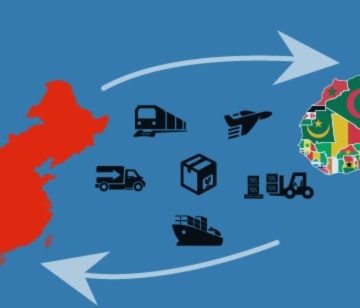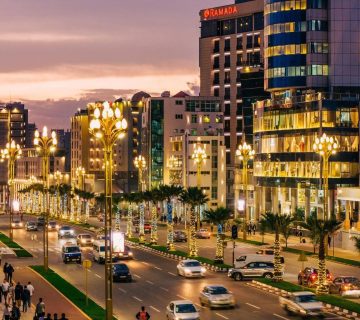COVID-19 outbreak in the Central African Republic (CAR) struck amidst efforts to implement a peace deal – the Political Agreement for Peace and Reconciliation in the Central African Republic (APPR-RCA). The deal was signed in February 2019 by the government and 14 armed groups to end a cycle of violence that had ravaged the country since 2013. Upon the outbreak of the virus, the country imposed preventive measures including limiting international flights, restrictions on movement from the capital, Bangui, to provinces, and a ban on all forms of gatherings. These are in addition to tighter controls on movement at border points and a vigorous information campaign to raise awareness among the population. Despite these measures, the infection rates have risen to 4,679 cases with 61 deaths as of August 24, 2020. As CAR battles the pandemic, it also has to ensure that implementation of the peace deal, in particular, the elections are not hindered. Most importantly, the government has to resolve the predicament of organizing a credible and peaceful election in a restrictive COVID-19 environment without jeopardizing public safety.
COVID-19 and Elections Dilemma
Management of elections in the era of COVID-19 continues to split opinion even in the most advanced democratic systems. In Africa, some states like Ethiopia have opted to postpone polls to enable the government to focus on containing the pandemic. Others like Burundi and Tanzania have chosen to proceed with elections as scheduled. On her part, Uganda has commenced electoral processes but with significant changes to voter mobilization strategies. Traditional political rallies have been replaced with ‘digital campaigns’ to the displeasure of the opposition parties.
Although the CAR government initially attempted to seek a delay to the elections due to the pandemic, the move was thwarted by the Constitutional Court in July 2020. The Court ruled that no justifiable reasons had been provided for postponing the elections. Those in favour of a delay had cited the health risks posed by COVID-19 outbreak and its related disruptions that have slowed down crucial electoral processes such as registration of voters and civic education throughout the country. Besides these, the country has also continued to report regular and sporadic attacks by sections of rebel groups targeting civilians and officers of the United Nations Multidimensional Integrated Stabilization Mission in the Central African Republic (MINUSCA).
Conversely, those opposed to a delay contend that the move is aimed at furthering the ruling party’s political interests as opposed to public safety concerns. A second attempt to delay the elections is not far-fetched. However, shelving an election has the effect of prolonging the term in office for incumbents. In the case of CAR, a country in a fragile political transition, this postponement is likely to heighten political tensions that have been on the rise. Even more worryingly, the move could be used by a section of rebel groups as a justification to ramp up attacks against civilians in different parts of the country. On the flip side, proceeding with an election in the midst of an unprecedented global health crisis without adequate public health precautions and capacity to manage a surge in infections could put voters at lives-threatening risk, disfranchise others and consequently invite questions regarding the legitimacy of the next government.
Be that as it may, these elections present a first step towards ushering in political stability and reconstruction of the CAR following years of turmoil. For a start, they offer a chance to the country to bridge ethnic and religious divisions that have fuelled violence in the recent past. The polls will widen the representation of different communities and religious groups in local and national levels of government and thus increase their input in the formulation of key decisions. Secondly, they present a legal and peaceful avenue as an alternative to violence and rebellion to the opposition to contest for political positions. Lastly, they present an opportunity for citizens to directly choose their leaders instead of the current model of a power-sharing agreement which ‘rewards’ perpetrators of violence and human rights violators.
Towards Peaceful and Safe Elections
Therefore, it is imperative that parties to the APPR-RCA build consensus on the timing of the elections and work jointly to create a safe and conducive political environment for the electoral process. Whereas the government led by President Faustin-Archange Touadéra bears the primary responsibility of organising elections and ensuring the safety of the voters, it is important that major decisions such as the change in the electoral calendar be only undertaken after inclusive dialogue and with the consent of all key political players. This will inculcate a sense of collective responsibility for the decision and limit confrontations in the country.
Also, given the precarious security situation in the country, the African Union (AU) – one of the main guarantors to the peace deal – should intensify calls to all parties to respect the provisions of the deal including maintaining a ceasefire, disarmament and implementation of the transitional justice mechanisms. The AU should also call out groups perpetrating attacks on civilians and law enforcement officers. On its part, the United Nations Security Council (UNSC) should extend sufficient political support and oversight to MINUSCA to effectively carry out its mandate of protecting civilians and support the delivery of the election. Further, the UNSC should ensure the recently renewed arms embargo on CAR is adhered to by all partner states with interest in the country. Lastly, it is critical that development partners increase financial support to strengthen security sector, bolster technical capacity for elections, as well as response to COVID-19 pandemic to lessen its impact on the transition and democratic processes.
Elvis Salano is a Research Assistant at the HORN Institute.
Photo: UN peacekeepers deployed to the MINUSCA mission in Central African Republic and a member of the Central African Armed Forces at a post in Bambari on January 11, 2019 (Photo Credit: @UN_CAR/Twitter)



